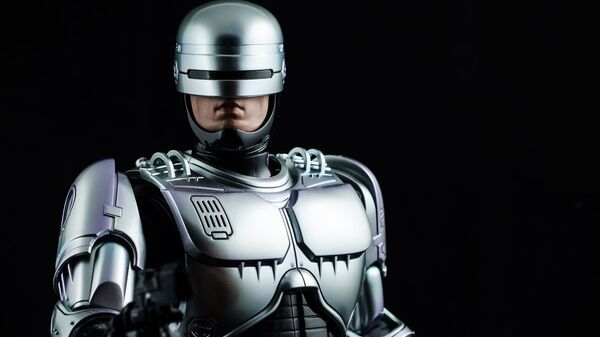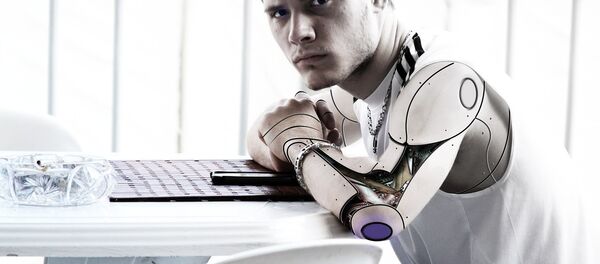Durham bobbies will soon be getting a helping hand in the form of an advanced AI system.
The futuristic tech will help officers decide whether to keep a suspect in custody or release them. It's known as the Harm Assessment Risk Tool (Hart), and it has been trained to predict the likelihood of a suspect re-offending based on five years of offending histories data. Hart has been tested before, in 2013.
Forecasts that a suspect had a low risk of re-offending were accurate 98% of the time. Forecasts that they had a high risk of re-offending were accurate 88% of the time.
Durham Police AI to help with custody decisions
— Ian Searle (@IanSearle) May 11, 2017
"Siri, is he guilty?"
"Guilty as sin… Throw the book at him!"
Set against humans, with all our frailties of exhaustion, sickness, personal prejudices, or even just needing another coffee boost, Hart's accuracy statistics are impressive.
Sheena Urwin, head of criminal justice at Durham Constabulary, told the BBC that the A.I. system will not make decisions independently of human officers, but rather will support it's human counterparts. At least for now.
"I imagine in the next two to three months we'll probably make it a live tool to support officers' decision making," she said.
It's hoped that the innovative policing partnership of man and machine will help streamline police decision making.
Yet, as with most developments, there are risks. Durham police have stressed that cases Hart will be involved with will be scrutinized in random case reviews.
Also, Hart is only as good as the data it has been given to help make predictions, which currently is geographically isolated to offending data from the Durham Constabulary.
With no access to the police national computer, if an offender with a history of violent crime from outside Durham police's jurisdiction was arrested by the force, Hart would be unable to accurately predict how much danger they posed to the public.
Nonetheless, for some, the real risk is the potential expansion of projects like Hart: in other words the threat of future job losses.
The potential of AI in the workplace goes far beyond the current scope of Durham Police's project.
Repetitive tasks, especially in IT and manufacturing, are already being completed by software robots and replacing thousands of people.
#ItsOkayToNotBeNiceWhen you know that you'll be replaced by a robot & you'll lose your job. pic.twitter.com/tfRVZGgnVf
— Farid Maidi (@faridmaidi) May 11, 2017
Several times in 2016 and 2017, ASLEF - the UK union for train drivers and operators — encouraged its members to strike, to try and resist Southern Rail's attempt to make opening and closing carriage doors automated, instead of the responsibility of a train guard.
And for those fearing that their job loss could be next, the Institute for Public Policy Research (IPPR) think tank has some bad news.
In April 2017, it published a report warned that a third of British jobs are at risk from automation within the next two decades.
What's driving this change is the falling costs of robots and computers, making them ever more attractive to employers.
The IPPR argued that the UK government should invest billions of pounds on new training programs now to help re-train low skilled workers to cope with the impending rise of automated workers.






